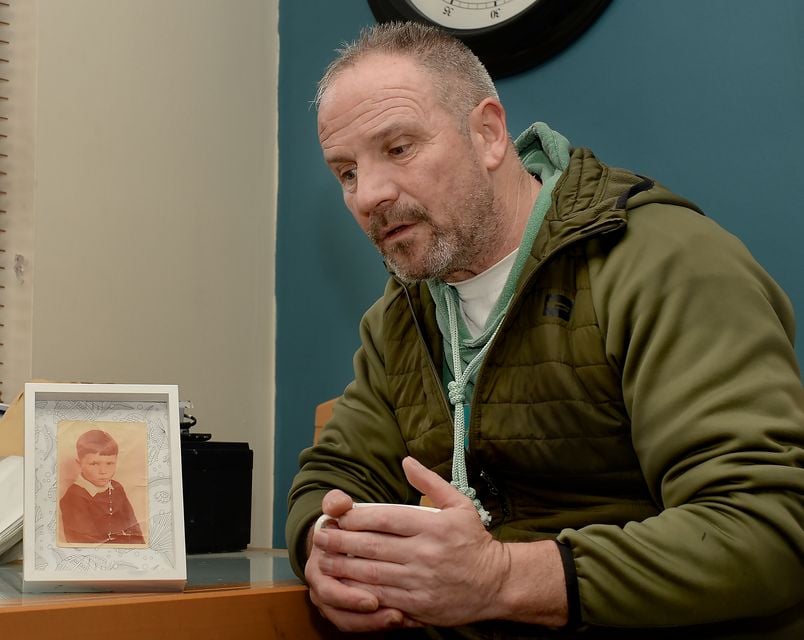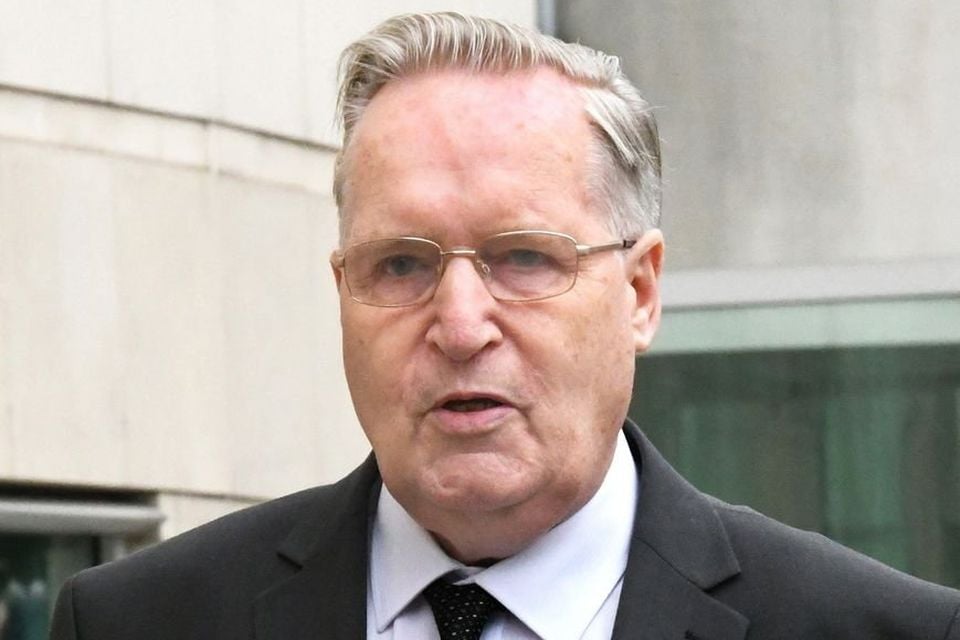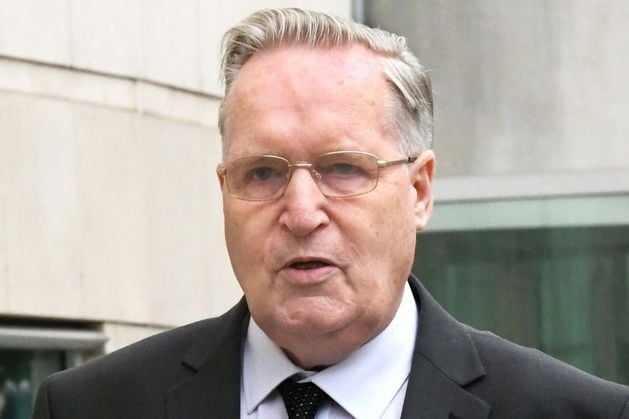Dunleavy passed away on Tuesday in hospital after being transferred from Maghaberry Prison, the Northern Ireland Prison Service has confirmed.
In line with protocol, the PSNI, the Coroner, and the Prisoner Ombudsman have been notified.
The 89-year-old, who had an address at the Glen Road in west Belfast, had been sentenced in November 2024 to 10 years in prison after being found guilty of 36 separate counts of sexually abusing nine boys.
These offences, which spanned from 1964 to 1991, occurred while he was employed Belfast, Newry, and Armagh.
His victims were between the ages of seven and 14.
The abuse came to light through a series of trials in which Dunleavy was convicted of 72 offences in total, involving 18 victims across four schools.
These included indecent assault, gross indecency with or toward a child, and attempted buggery.
He had previously been convicted twice before for similar offences and was already in custody at the time of his final sentencing.

Michael O’Hare, beside a photo of himself as a child, recalls his harrowing physical and sexual abuse at the hands of Christian Brother Paul Dunleavy
Solicitor Owen Beattie, who represents a number of survivors, described Dunleavy’s legacy as emblematic of widespread abuse within institutions.

Paul Dunleavy
News Catch Up – Wednesday 27th August
“The shadow Paul Dunleavy cast reflects a much larger, systemic problem that affected children across the country,” he said.
He added that the actions of the Christian Brothers during this period remain under close legal scrutiny and are part of ongoing High Court proceedings.
The Belfast Telegraph previously spoke to two of Dunleavy’s victims.
To preserve their anonymity, we have named them Jay and Brendan – not their real names.
Jay, now in his 50s, was just 10 when he was sexually abused by Dunleavy at a Belfast primary school.
He recalled the abuse starting in a school store room after a football game, when Dunleavy lured him in with the offer of a lolly.
The former Christian Brother used disturbing language, telling Jay: “This is what you do with your girlfriend” – a phrase the young boy later learned was repeated to other victims as well.
Jay said the abuse left deep scars. He spent much of his adult life in denial, but its impact surfaced in self-destructive behaviour, including alcohol addiction, sabotaging relationships, and quitting jobs.
He described a cycle where things would go well for a while, then he would push people away out of shame and fear they’d discover his past.
Brendan, now in his 60s, recounted the severe psychological and physical abuse he also endured from Dunleavy while attending Abbey Christian Brothers’ Grammar School in Newry as a child.
The abuse began when Brendan was around nine or 10 especially when he was alone with Dunleavy in places like the attic above the tuck shop or a classroom.
Although he cannot remember the specific events that occurred in those isolated moments, the trauma has deeply affected his entire life.
Brendan described Dunleavy’s methods of physical abuse, including the use of a silver-painted dowel rod, and how the psychological manipulation made him grow up hating himself. He believed he was worthless, which led to decades of self-harm, suicide attempts, and ongoing mental health struggles.
Brendan said he had felt no emotional closure following Dunleavy’s sentence, and reflected on how normalised the abuse seemed at the time, and how difficult it still is to fully confront or understand what happened.
He came forward with his story in 2018 after seeing Dunleavy on television, which gave him the courage to contact the police.
Brendan still describes his healing process as long and painful, with lasting consequences.
